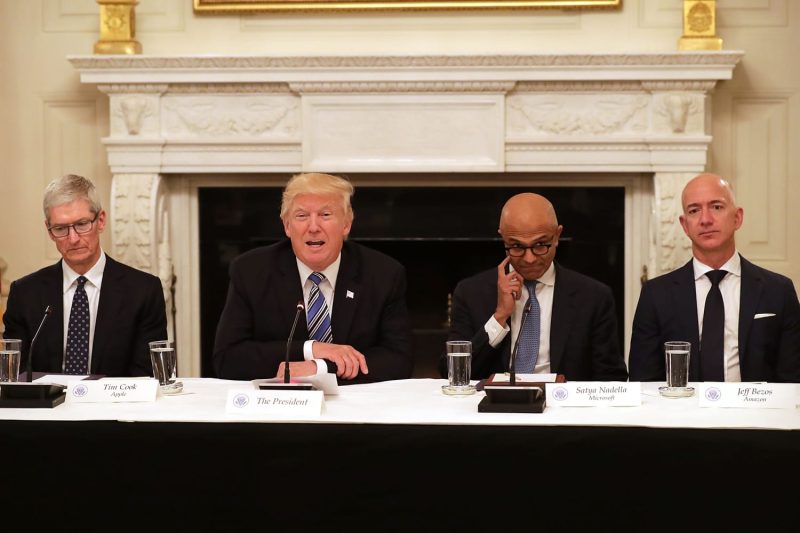
Trump’s Presidency Predicted to Ignite an Explosion of Deals on Wall Street
The Wall Street community expects significant changes with the Trump presidency, especially in the realm of deal-making. This anticipation drew from Trump’s reputation as a business mogul, alongside a belief that his administration’s policies would shake up the world of finance, trade and global business dealings, particularly with their commitment to a pro-business, deregulation agenda.
Firstly, tax reform measures passed during Trump’s tenure had profound implications on Wall Street’s performance and deal-making. The decrease in corporate tax rates from 35% to 21%, along with the introduction of a one-time tax on overseas profits, revamped the financial landscape. By doing so, these policies made US companies more competitive on the global stage, enticing them to repatriate billions of dollars in overseas profits. It’s also noteworthy that a tax holiday on the repatriation of foreign profits may have fueled further deal-making since companies now have added funds to acquire assets. These changes can be seen as Trump’s way to stimulate the economy and unlock deal-making, providing corporate America with more investment and growth opportunities.
Secondly, deregulation has been a cornerstone of the Trump administration’s approach to stimulating economic growth. Rolling back various financial and environmental regulations inherited from the Obama era was expected to build a more conducive environment for businesses. For decades, Wall Street argued that too many regulations stifle growth, innovation, and freedom in the private sector. Thus, the Trump administration’s noteworthy efforts to deregulate several sectors, including finance, environmental, healthcare, and others were expected to facilitate a more favorable environment for deal-making, particularly for mergers and acquisitions.
Trump’s presidency was also characterized by a notable shift towards protectionism, most evident in the rewrite of trade deals such as the North American Free Trade Agreement (NAFTA) and the initiation of a trade war with China. This protectionist stance could lead to increased domestic deal-making as companies look to shore up their positions against international competitors. While a ‘Fortress America’ approach can be seen as restrictive for international trade, it inherently boosts domestic business propositions.
Additionally, under the Trump administration, trade policies took a decisive turn towards bilateral agreements. Such direct, two-party negotiations often lead to more flexible terms that can facilitate deal-making. For example, the U.S. – Mexico – Canada Agreement (USMCA), which replaced NAFTA, is seen as a more advantageous agreement for American businesses.
Finally, Trump’s unique business-oriented approach to politics was expected to unlock further deal-making. His entrepreneurial instincts and focus
